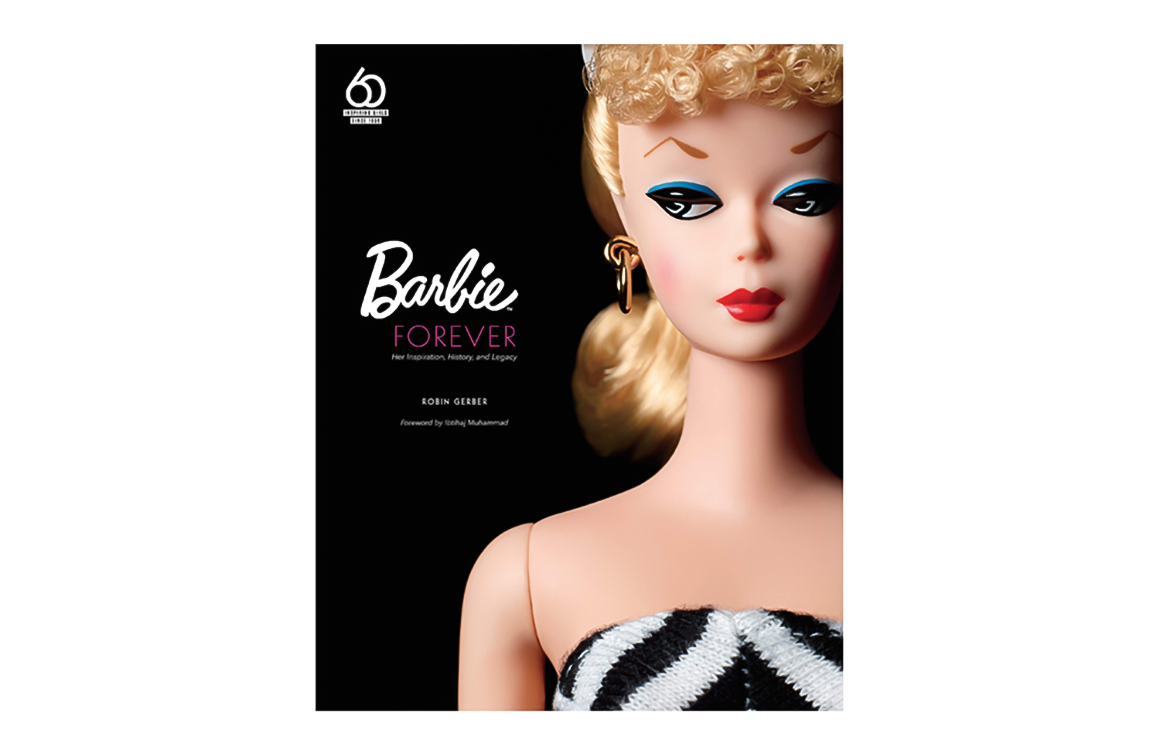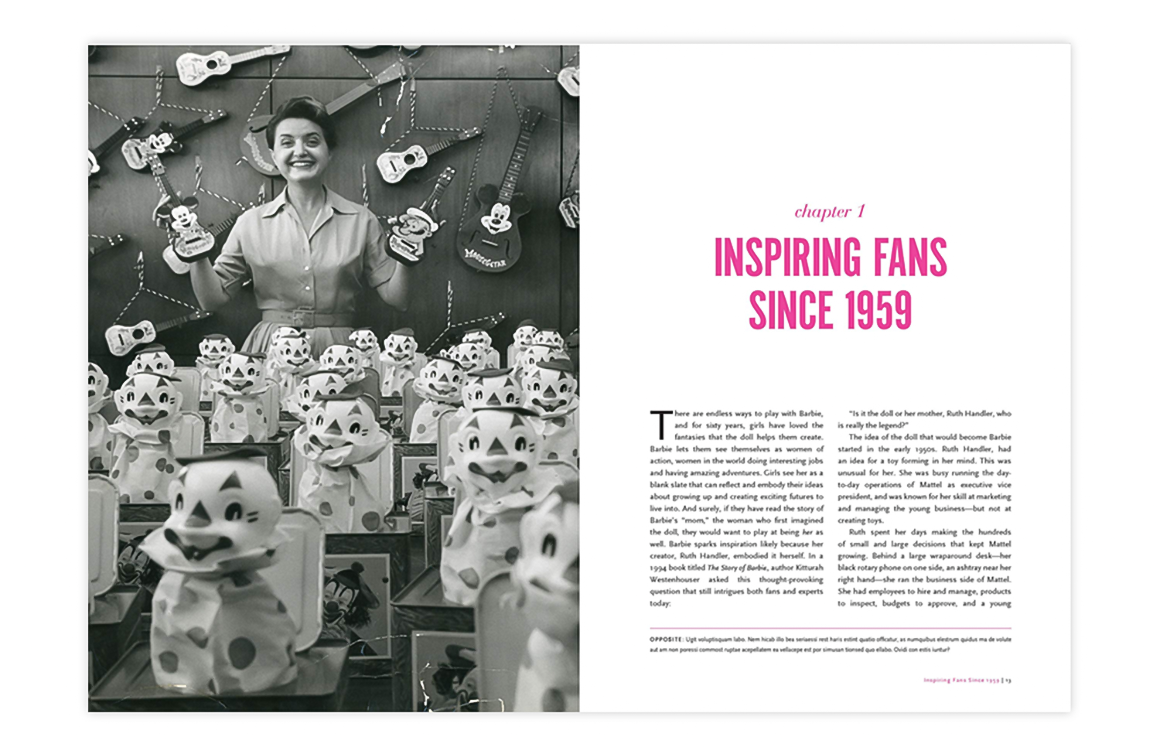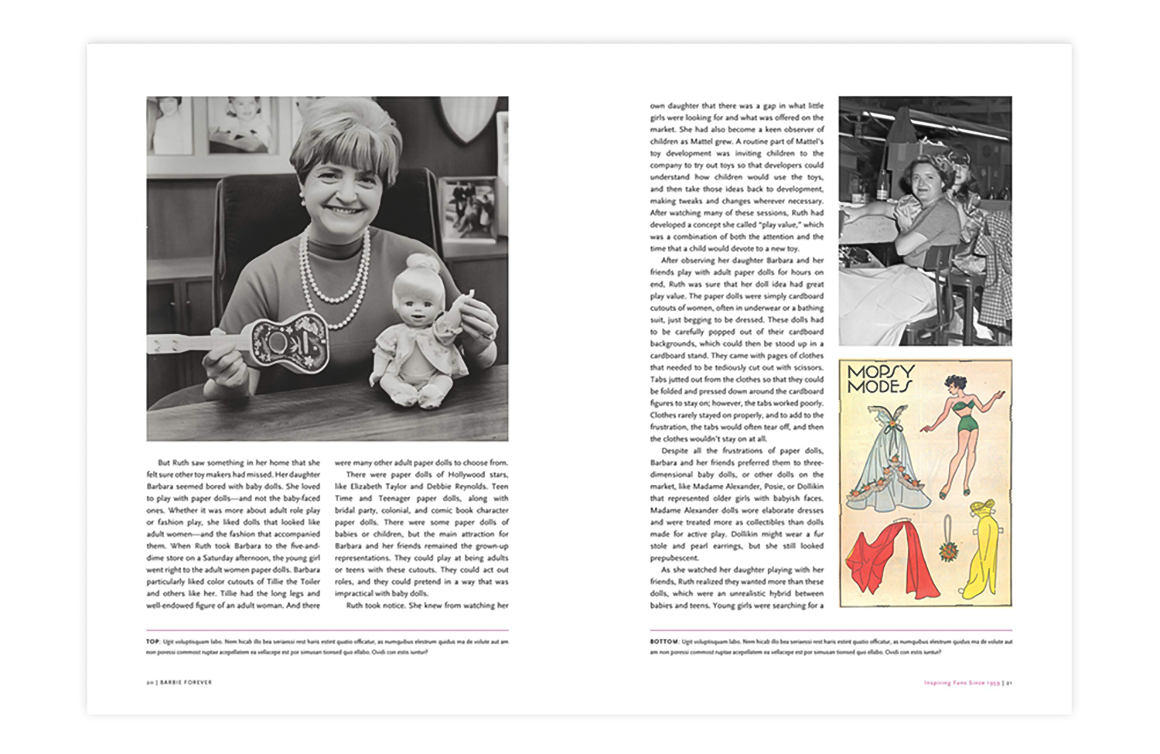You wrote your book, Barbie and Ruth, in 2008. In September 2019, you release Barbie Forever: Her Inspiration, History, and Legacy. Why did you revisit Barbie for a second book?
Mattel approached me to create a coffee-table book about Barbie for the doll’s 60th anniversary. Barbie Forever is different from Barbie and Ruth in that the new book focuses on the evolution of Barbie as a cultural icon. It took a bit of research. I interviewed people involved in the Barbie brand and was given access to original documents of significance, such as the report from the very first focus group conducted by Ernest Victor. It was a fascinating read. It could have been written yesterday; the mothers in the focus group expressed concern that Barbie was too sexualized, while young girls loved the doll the second they held it in their hands.

What boundaries has Barbie broken through in her lifetime?
Well, of course, Mattel has given her many occupations. The fact that Barbie had an occupation at all was ahead of the times. She was created in 1959, a time when most women were homemakers and continued to be encouraged in that direction for another decade. It was boundary-breaking to encourage girls to be more than mothers and homemakers.

If Barbie was created today, would she be able to create an equally illustrious legacy?
If there were no other dolls available, then I would say yes. Otherwise, no. We’ve seen attempts to copy Barbie that have not been successful, never mind remaining in the marketplace for 60 years like Barbie has. Even Ruth Handler, the creator of Barbie, thought the popularity of the doll would last only a few years.

In what ways does Barbie’s legacy influence contemporary toy makers?
That’s an interesting question. Her influence is felt beyond the toy industry. Barbie inspires creativity in people, not just kids. Clothing designers often talk of the influence of Barbie in their formative years and how they’d dress Barbie using napkins and scraps of fabric. Barbie is a tool that inspires the imagination to dream of what might be.

What keeps consumers coming back to Barbie, despite the controversy about the doll’s suitability for young minds?
I’ve talked to hundreds of people about that; it’s a political argument. Only a couple of individuals have said that they feel badly about themselves because of Barbie’s appearance. Ruth Handler would say that it’s not up to the toy industry to shape young girls’ views about their bodies, it’s up to their parents. My daughter owned Barbies and she turned out great.

Learn more about Robin Gerber’s work on robingerber.com.




